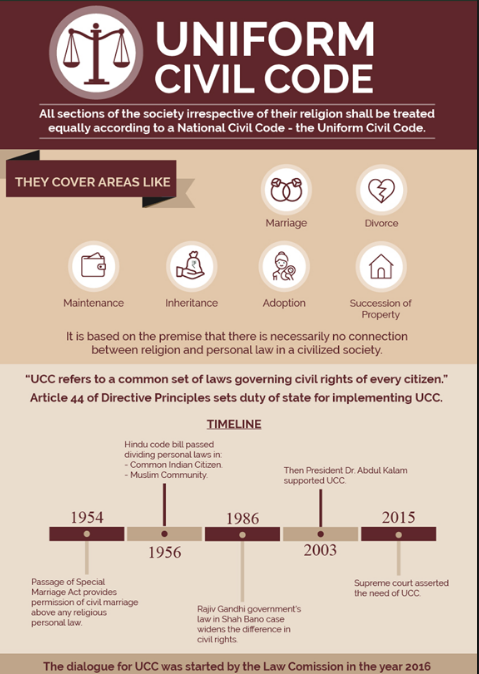Uttar Pradesh Switch to Hindi
Operation Shikanja
Why in News?
The Economic Offences Wing (EOW) of Uttar Pradesh Police launched Operation Shikanja from 9th-13th October 2025, resulting in the arrest of 23 absconding economic offenders across the state.
Key Points
- Objective:
- To nab long-time absconders involved in major financial scams in Uttar Pradesh.
- To ensure accountability and recovery of misappropriated public funds.
- To strengthen the rule of law against white-collar crimes through coordinated policing.
- Coordination: Under Director-General Neera Rawat’s directives, eight specialised teams supported by digital intelligence executed simultaneous multi-district raids coordinated through real-time surveillance to prevent escapes.
- Impact: Within four days, 23 absconders were arrested, long-pending warrants executed, and recovery of defrauded public funds was initiated.
- The EOW has announced continued action under Operation Shikanja until all economic fugitives are apprehended.
- Significance: It represents a coordinated statewide crackdown on financial crimes in Uttar Pradesh through digital surveillance and inter-district collaboration, reinforcing public trust in the EOW’s pursuit of economic justice.
Economic Offences Wing (EOW)
- About:
- It was established in 1970 within the CID to handle economic crimes.
- In 1972, the Government assigned EOW the responsibility of investigating offences related to 10 departments — Forest, Transport, Food & Civil Supplies, Local Bodies, Industries, Excise, Agriculture, Panchayati Raj, Minor Irrigation, and Sales Tax.
- In 1977, EOW was reorganised as a separate specialised investigation branch of the U.P. Police.
- The scope of EOW was expanded in 2006 to cover economic offences involving all Government departments.
- In 2018, the Government established four EOW Police Stations in Lucknow, Varanasi, Meerut, and Kanpur to strengthen its operational reach.
- Functions: It investigates cases of cheating, fraud, and misappropriation of government funds involving various government entities, may be entrusted with cases concerning private individuals or organisations based on the severity of the offence, and collects intelligence on government revenue losses for appropriate governmental action.
Rajasthan Switch to Hindi
Udaipur Launches AI-Powered Traffic System
Why in News?
Udaipur has launched an artificial intelligence (AI)-driven traffic signal system at the busy Fatehpura intersection as part of a pilot project aimed at improving traffic management.
- The initiative seeks to streamline traffic flow, reduce congestion, and save commuters’ time.
Key Points
- About: Unlike conventional traffic lights that function on fixed schedules, the new AI-based system employs high-resolution cameras and sensors to monitor real-time vehicle movement.
- The AI continuously analyses traffic density in each lane and dynamically adjusts signal timings to optimise flow.
- Lanes with minimal traffic receive shorter green signals, while heavily congested lanes are given extended green durations, allowing for smoother movement across the intersection.
- The system is also integrated with a mobile application, enabling traffic authorities to monitor conditions remotely and make data-driven adjustments when necessary.
- Priority for Emergency Vehicles: Beyond regular traffic control, the system is equipped with sound sensors capable of detecting sirens from ambulances and fire engines.
- When such a siren is detected, the AI instantly switches the corresponding signal to green, allowing emergency vehicles to pass through intersections without delay, a feature aimed at improving response times during emergencies.
- Data-Driven Urban Mobility: In addition to managing immediate congestion, the AI system collects and records traffic data throughout the day. These insights will enable city authorities to analyse long-term traffic patterns and develop more efficient management strategies.
- Significance: If the Fatehpura trial proves effective, Udaipur plans to implement similar AI-based systems at other major junctions across the city, marking a significant step toward smart and data-driven urban mobility.
Chhattisgarh Switch to Hindi
Road Project to Link Maoist-Affected Abujhmarh
Why in News?
The Chhattisgarh government has approved the construction of a 21.5 km road stretch connecting the insurgency-affected Narayanpur district's Abujhmarh region to Maharashtra.
Key Points
- About: The road, which will be developed in three segments, is expected to cost ₹152 crore. Designed with a two-lane paved shoulder, it will provide year-round accessibility through dense forest terrain.
- Direct Link: The new road will establish a direct link from the remote Kutul region, located deep within the Maoist-affected Abujhmarh area, to Neelangur, situated on the Maharashtra border.
- The 21.5 km stretch forms part of the 195 km NH-130D, a spur of NH-30, which starts from Kondagaon, passes through Narayanpur and Kutul, and extends into Maharashtra.
- On the Maharashtra side, the route will continue through Bingunda, Laheri, Dhodraj, Bhamragarh, Hema, and Lakasa, connecting these areas to NH-353D at Alapalli.
- Historically, these areas were among the worst affected by Maoist insurgency. However, intensified anti-Naxal operations have significantly reduced insurgent activities, creating room for infrastructure development.
- Impact: Once completed, the road will provide Bastar with a direct connection to the national highway grid. This connectivity is expected to boost trade, tourism, and security operations in Left Wing Extremism (LWE)-affected zones.
Chhattisgarh Switch to Hindi
Chhattisgarh Cabinet Sets Paddy Procurement Price
Why in News?
The Chhattisgarh Cabinet, chaired by Chief Minister Vishnu Deo Sai, approved key measures for paddy procurement during the Kharif Marketing Season (KMS) 2025-26.
Key Points
- Procurement Centres: The paddy procurement for Kharif 2025-26 will begin on 15th November 2025, at a price of Rs 3,100 per quintal, running until 31st January 2026, benefiting over 25 lakh farmers across the state.
- A total of 2,739 procurement centres will be established statewide, along with measures to ensure a sufficient supply of new and old jute gunny bags for efficient transport and lifting operations.
- The Department of Food, Government of India, has set a target of 73 lakh metric tonnes of rice for the central pool during KMS 2025-26.
- Payment Process: Farmers will receive payments within six to seven days after selling their produce to cooperative societies. A purchase limit of 21 quintals per acre has been set for paddy procurement.
- Digital Crop Survey: A digital crop survey covering 23 lakh hectares has mapped paddy cultivation areas, with the data being publicly verified across 20,000 villages.
- Technology-Driven Initiatives:
- ‘Token Tunhar Haath’ Mobile App: Allows farmers to book slots online for selling paddy, reducing waiting times and queues at procurement centres.
- Biometric-Based Procurement System: Ensures that purchases are made only from genuine farmers.
- E-KYC Requirement: Mandatory e-KYC registration via the AgriStack portal to strengthen transparency and prevent duplication.
- Incentives: Cooperative Societies that achieve zero shrinkage or wastage during the season will receive an incentive of Rs 5 per quintal.
- Monitoring & Control: An Integrated Command and Control Centre will be established at the Markfed office, with district-level control rooms to monitor procurement activities.
- District Collectors are instructed to appoint administrative officers as centre-in-charges and form special checking teams to prevent the diversion and recycling of paddy from neighbouring states.
- Significance: The Chhattisgarh government's strategic steps aim to strengthen its flagship procurement system, promote transparency, and ensure that farmers receive timely payments and fair value for their harvests.
Jharkhand Switch to Hindi
Saranda Forest as Wildlife Sanctuary
Why in News?
The Jharkhand cabinet has approved a proposal to notify a portion of the Saranda forest in West Singhbhum district as a wildlife sanctuary, in compliance with the Supreme Court’s directive.
- Saranda Forest, meaning “Land of Seven Hundred Hills,” is one of India’s richest sal forests and a critical elephant corridor.
Key Points
- Area Notified: The cabinet approved the notification of 314.65 sq km of the Saranda forest as a wildlife sanctuary, along with a 1 km eco-sensitive zone around it.
- The move was approved by the Department of Forest & Climate Change.
- The rights of Scheduled Tribes and traditional forest dwellers under the Forest Rights Act (FRA) and access to state and central welfare schemes will remain protected.
Supreme Court’s Directive
- On 8th October 2025, the Supreme Court gave Jharkhand seven days to notify the Saranda forest as a wildlife sanctuary, warning of a writ of mandamus over repeated delays.
- The CJI-led bench allowed mining operations by Steel Authority of India Limited (SAIL) to continue in existing mines for projects of national importance, while prohibiting new mining leases in the region.
- The state expanded the proposed sanctuary area and also earmarked land for the Sasangdaburu Conservation Reserve.
Uttarakhand Switch to Hindi
Uttarakhand Eases Marriage Rules for Foreigners
Why in News?
The Uttarakhand government has approved an important amendment to the Uniform Civil Code (UCC), which now allows citizens of Nepali, Bhutanese, and Tibetan origin residing in the state to register their marriages, even if they do not have an Aadhaar card.
Key Points
- Eligibility: Citizens from Nepal, Bhutan, and Tibet can now register their marriages using alternative identity documents, such as a Citizenship Certificate, Residence Certificate, Passport, or Valid Identity Card.
- In cases where citizens from these countries are already married or about to marry, they can register their marriages by uploading these documents.
- Objective of the Amendment: The amendment aims to accommodate foreign citizens, especially from Nepal, Bhutan, and Tibet, who have deep historical and cultural ties with Uttarakhand.
- These regions share an international border with Uttarakhand and have longstanding residence, relationships, and marriage connections with the state.
- The state recognises the importance of integrating these citizens into the social justice system and ensuring they are not excluded from legal processes such as marriage registration.
- Key Provisions of UCC in Uttarakhand:
- The UCC, passed in February 2024, excluded tribal communities from its provisions.
- The UCC prohibits certain practices like Halala, Iddat and Talaq (customs related to marriage and divorce in Muslim Personal Law).
- It ensures gender equality by granting women equal rights in property and inheritance matters.
- Under the UCC, marriage and divorce registrations are mandatory, with couples who fail to register being denied government benefits.
- Stringent provisions are in place for unregistered live-in relationships, though children born from such relationships are recognized as legitimate.
National Current Affairs Switch to Hindi
World Standards Day
Why in News?
Shri Pralhad Joshi, the Union Minister for Consumer Affairs, Food and Public Distribution and New & Renewable Energy lead the World Standards Day programme on 14th October 2025.
- The event was organized by the Bureau of Indian Standards (BIS), under the Ministry of Consumer Affairs, Food and Public Distribution, Government of India.
Key Points
- About: The celebration at the National Institute of Training for Standardization (NITS) featured the release of the National Lighting Code of India 2025, along with the launch of the Learning Management System (LMS) and the Online Standards Development (OSD) Module on the BIS Standards Portal.
- World Standards Day:
- About: The first World Standards Day was first celebrated in 1970 to raise global awareness about the importance of standards in fostering safety, quality, and international trade.
- The day was established by International Organization for Standardization(ISO), in collaboration with International Electrotechnical Commission (IEC) and International Telecommunication Union (ITU), to honor the global community of standard developers and their contributions.
- Purpose: World Standards Day celebrates the pivotal role of standards in ensuring quality, safety, and sustainability. It recognizes the collaborative efforts of experts—scientists, engineers, policymakers, and innovators—who work to create these frameworks.
- Theme: The 2025 theme, “A Shared Vision for a Better World: Standards for Sustainable Development Goals” emphasises the role of international standards in promoting global cooperation towards achieving the United Nations Sustainable Development Goals (SDGs).
- About: The first World Standards Day was first celebrated in 1970 to raise global awareness about the importance of standards in fostering safety, quality, and international trade.
Bureau of Indian Standards (BIS)
- BIS is the statutory national standard body of India established under the BIS Act, 2016, for the harmonious development of the activities of standardisation, marking and quality certification of goods.
- It was initially set up as the Indian Standards Institution (ISI) that came into being on 6th January 1947.
- It is headquartered in New Delhi.
- It operates various schemes like Product Certification (ISI mark), Hallmarking of Gold and Silver Jewellers, ECO Mark Scheme (for labelling of environment friendly products).





 PCS Parikshan
PCS Parikshan



